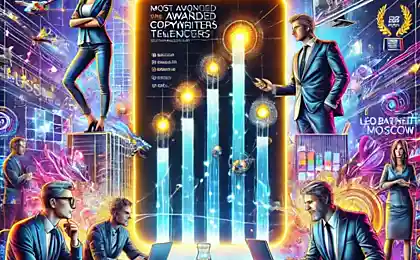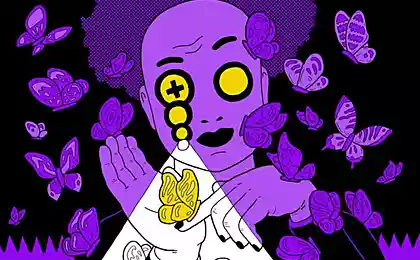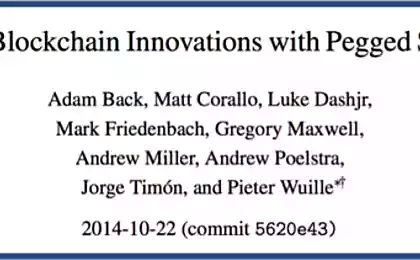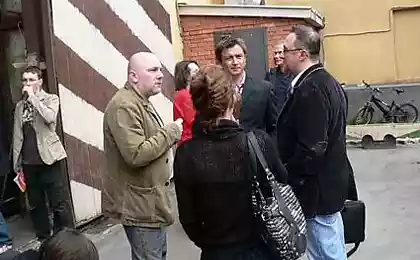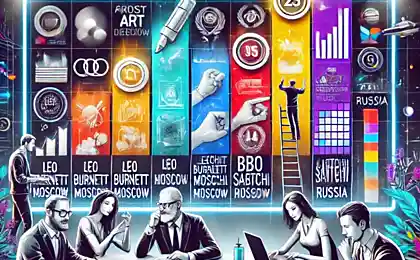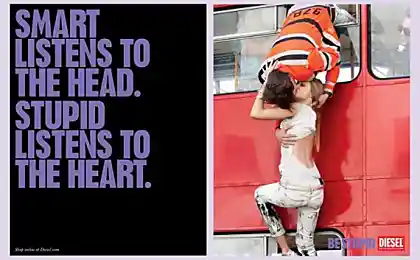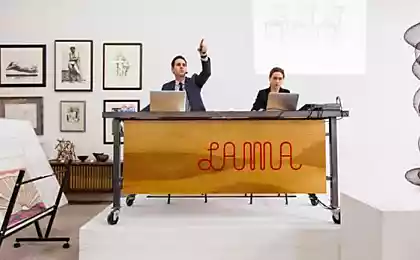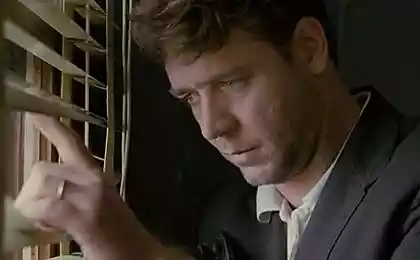689
10 smart books about how to rule the world or at least yourself
Lecturer Institute of international relations and the Wisconsin international University Gleb Buryak wrote Platfor.ma about how human control is still unknown processes. And offered ten books that will at least try to understand who we are and why.
Computers are run by demons. The so-called background programs, which users cannot see. That is, you drag your finger across the phone screen, it responds to pictures and sounds, but complex calculations and scenarios safely hidden engineers-creators from our eyes.
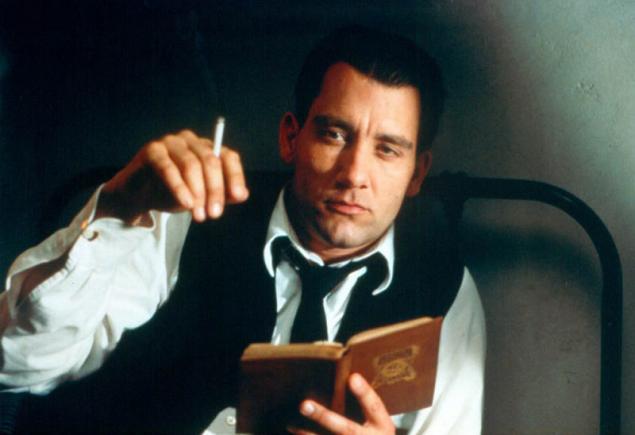
The protagonist of the best series of the year, "Mr. Robot" wants to program daemons in the international financial system and to reset humanity to prehistoric times. He compares computer demons with a human and finds no difference: "Like a program running in the background while you are busy with something else. They are called demons, they operate without user intervention. Observation, recording, notification primitive impulses, repressed memories, unconscious habits – they are always there, always with you. We're trying to be right try to be good, trying to change something, but it's all garbage. Motivation means nothing, they don't control us, and the demons."
We say we have consciousness, I don't even know what it is. It seems to us that we have free will and desire, there is intelligence, which we understand ourselves and the world. What if we are robots? Life itself lays in our behavior scenarios that we recognize not. Screenwriter Federico Fellini, Tonino Guerra complained of excessive Smoking: "... before I smoked no less eighty cigarettes a day, of them, the truth is that consciously, I smoked no more than ten pieces. The other seventy were Vykurovanie as something of themselves, I didn't even notice how. Who smoked my cigarettes, I don't know where and when I could smoke, I'll never know... the body was fun all the way, and I'm not ruled. I used to not pay attention to it, now began to follow him, but, noticing the actions committed against their will, I fear".
In the XXI century we have come to understand the brain and physical explanation of the will and consciousness. Just think, we built a civilization to go into space, have created artificial intelligence, but still can't explain what we did. We move forward by touch, by trial and error, not knowing what nature will throw us in every time.
Ancient people with uncertainty helped to cope religion. Faith in the omnipotence of God gave the answer to these questions, and scientists are moving step by step to displace God physics. Ironic that your brain even atheists are forced to accept the faith, and recent advances in neuroscience prove the assumptions of the most ancient religions.
The Jains three thousand years ago considered hopelessly limited human and therefore unworthy of confidence in any way. If the body is limited to five senses, we see only a reflection of these feelings, and the whole world – only model and ultimate truth does not exist. The universe is illusory, because the Jains in any case with respect to all other religions – each has its own illusions.
Science isn't going to be anyone to flirt, scientists believe in the truth and real facts. German Explorer of consciousness Thomas Metzinger have achieved the impossible: put a picture of the current knowledge about the brain and came to the conclusion that the world is indeed illusory. Right-Jains-right fans of "the Matrix", right Skovoroda: "And like vile stones, so even more not saying that you have to be based on appearances. Any visibility is flesh, and all flesh is sand, although she was born in China; all the idol that visible."
Each of us builds his own illusion, based on experience and acquired knowledge. Almost always we do this unconsciously, we program your demons and then quietly obey them. I would like to find the perfect program and install it on each person, but no one in the world able to cover the whole experience. Our tips are based on my personal past, and the recommendations of favorite books is limited only by the fact that we read.
I also offer my experience – books about what happens inside a person. Decision making is a continuous process, millions of algorithms of noise in our heads. How to sort out this noise?
NOAM CHOMSKY "SYNTACTIC STRUCTURES"
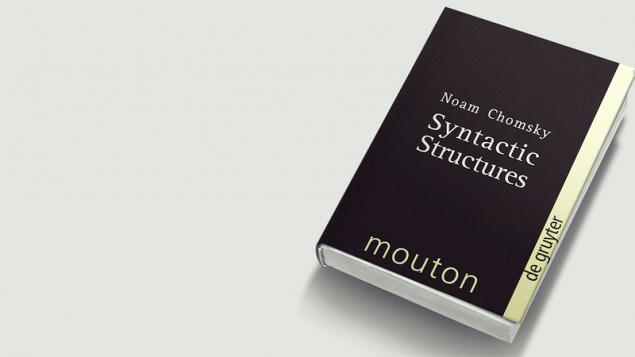
The most cited living scientist, Chomsky considers the communication of the transformation of the characters. Our ideas of deep structure, our speech and behavior is superficial, and the man only those involved that transforms one to the other. Publication far 1957 is read today is boring, but this work marked the beginning of engineering knowledge and gave impetus to many other Sciences.
JOHN GRINDER, RICHARD BANDLER. "STRUCTURE OF MAGIC"
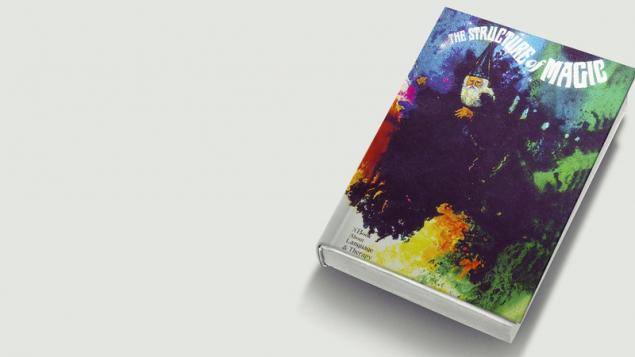
Ex-CIA John grinder was a Professor of linguistics at the University of California and drew attention to the particularly charismatic student. Richard Bandler was okay to turn the conversation, to argue with him was impossible. Grinder offered Banderu cooperation, using the methodology of transformational grammar Chomsky, they tried to simulate the skills of persuasive communication for the masses. So was formed a tandem that will give the world a hitherto fashionable neuro-linguistic programming and the two volumes "Structure of magic". The story is akin to the familiarity of a successful writer, Yevgeny Katayev, who liked jokes Ilya Fainzilberg that eventually this friendship turned into a tandem of Ilf and Petrov.
ROBERT DILTS "TRICKS OF THE LANGUAGE. AS YOU SAY, TO INFLUENCE PEOPLE?"
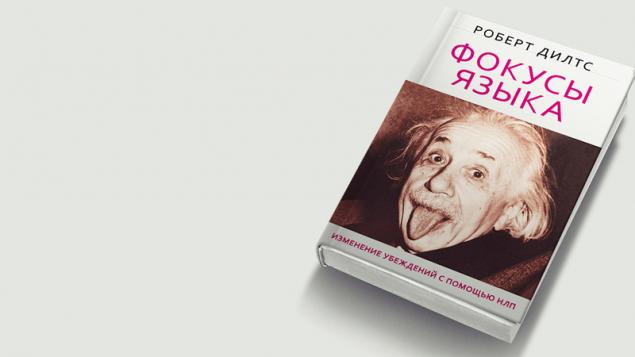
From the ocean NLP-experts, gurus, coaches and other trainers with the same trainer highlights the scientific approach and strong methodology. A superficial study of psychology gives many false confidence, but the sober approach of Dilts and the broad theoretical explanation is flirting with the reader is much safer and more useful for conscious learning.
DANIEL KAHNEMAN "THINK SLOW, DECIDE QUICKLY"
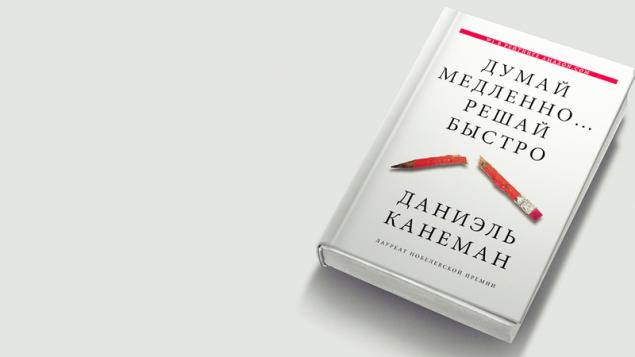
Nobel laureate Kahneman examines the stereotypes and simplification. The human brain is like a catalog, with instructions. Every time we are faced with a new challenge, we have to write a new manual, but the brain is lazy and weak, because it is easier to find already existing solution. Kahneman describes the most popular errors and harmful stereotypes that hinder our perception in the trap. If from the time of Adam Smith, a person is considered being rational and focused on obtaining results, Kahneman ironically proves that rationality is not inherent in us. We're just a collection of beliefs.
MALCOLM GLADWELL "INSIGHT. THE POWER OF INSTANT SOLUTIONS"
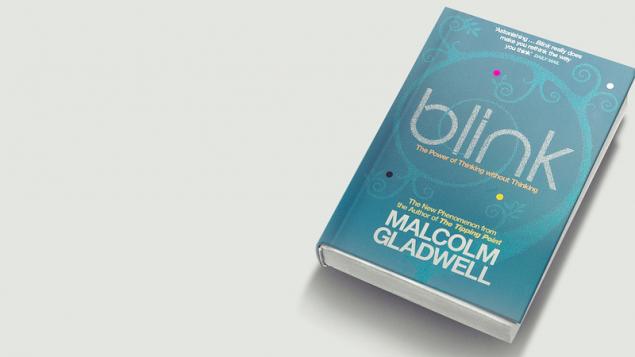
Author NewYorker pop sociologist Gladwell negates our knowledge of intuition. It turns out that it doesn't exist, it's just a flash in our brain that give us ready-made solutions. It's those stereotypes and quick thinking, which Kahneman writes, or demons, which says "Mr. Robot". Gladwell is worth reading already for unexpected views on traditional things, he tells stories. As an art expert can glance to distinguish a fake? That unarmed black guy can get a dozen bullets from the police? As the field General Paul van riper defeated the us army at the most ambitious exercises in the history?
MICHIO KAKU "THE FUTURE OF THE MIND"
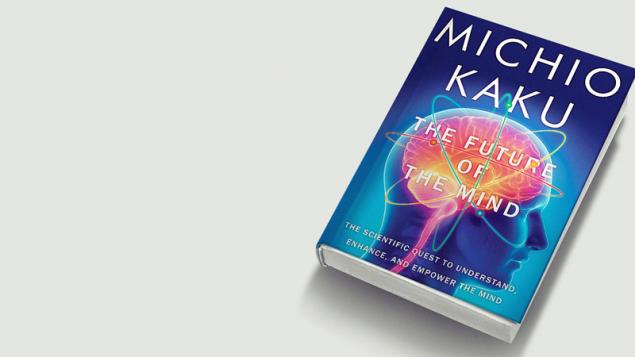
The creation of new instruments has expanded our knowledge about the physiology of the brain. Popularizer of science Kaku tries-to-understand language to describe this strange body: if the brain will work at least 20% of its capacity, its temperature will increase 5 degrees Celsius, and people die; the latter is a mutation of the brain happened 6 thousand years ago, then there was the writing; digitization of all synapses and neural connections of a single brain will be the amount of data that is comparable to the Internet.
RAY KURZWEIL "HOW TO CREATE A MIND"
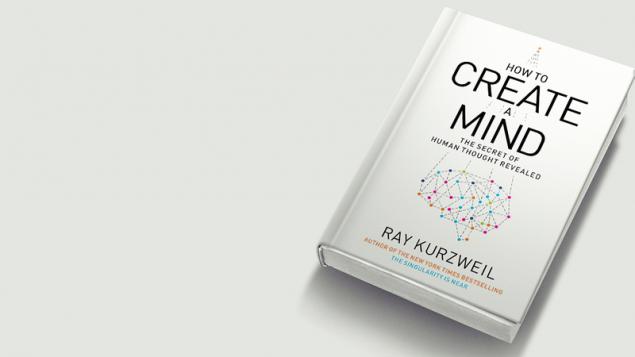
In the ' 70s Kurzweil created the algorithm for optical pattern recognition, and today Fecebook guesses our names on the photos. The book describes the work of artificial intelligence and making robots more intuitive. Kurzweil believes that in 2030 mankind will reach the limits of development and for further progress we'll need artificial intelligence. Perhaps he will give us the final answers to all the questions about the person.
THOMAS METZINGER "EGO TUNNEL – THE SCIENCE OF THE MIND AND THE MYTH OF YOURSELF"
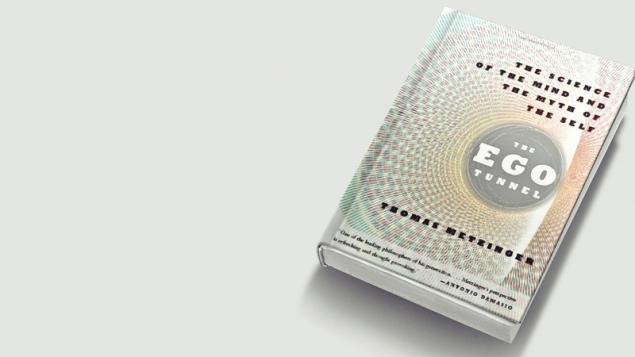
"In this book I will try to convince you that there is no such thing as the self. Contrary to what he believes most people have never been myself and had no self". The above mentioned Thomas Metzinger is located at the intersection of philosophy and physiology. Standing on the shoulders of Wittgenstein, armed with electroencephalograms he seems to gave found the explanation of the phenomenon of human consciousness. This is one of the most difficult to write books that you come across in life. In addition, translation into Russian language is now only an Amateur. But to get the previous books from the list, you will want to dive into the analytical description of his consciousness.
Scientists argue that we live in a fantasy world that recreates our brain. At the same time completely brain we manage not, we have only a small wandering area. Described him as Ivan Pavlov: "you drive Like a beam of light in the abyss". We instrument the strings of which are beaten by random changes in the weather, speakers with TV or sidelong glances of strangers. Our mirror neurons obediently adopt someone else's behavior and mood, we enjoy at rock concerts or panicking during crises. No amount of knowledge will not change the limitations of the human body, but we can become more efficient, aware and a little independent. Psychoanalysis is nothing to explain from a scientific point of view, but it will help to look inside ourselves and understand the nature of feelings and emotions. If we can't cope with the emotional waves and back to the common train of thought, we have two options. From the chemical point of view, our emotions are hormones, so you can block them with antidepressants and with a clear conscience to get back to normal life. Psychoanalysis is a more complicated and implicit way, but the list of literature about human nature would be incomplete without it.
BERRY WEINHOLD, JANAE WEINHOLD THE "LIBERATION FROM CODEPENDENCY"
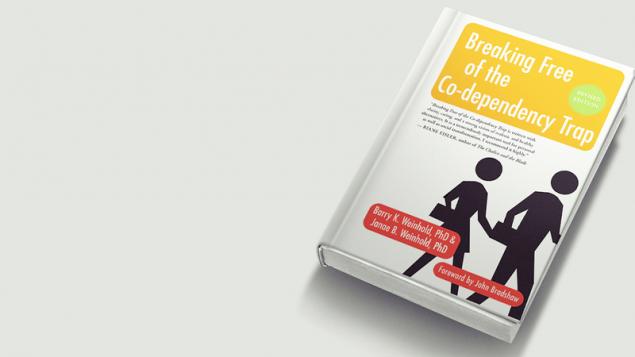
The authors are practicing psychoanalysts. All of their patients, they find a common emotional problem – codependency: their fears and grievances of patients trying to compensate for the expense of loved ones. In our society it has become an ugly norm, which requires to be treated. Weinhold argue that the codependency issues delivered only 2% of people, because you will definitely see in the book the behavior of their loved ones or even yourself. And then you will be less irritation to take the behavior of others: they do not blame them since childhood, all run by demons.
ERICH FROMM. "THE ART OF LOVE"
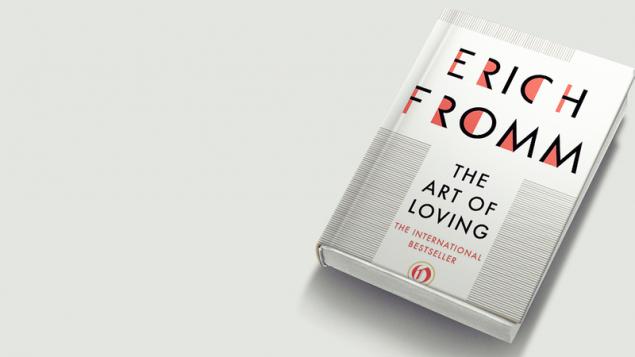
One of the main philosophers of the twentieth century writes about the eternal. Not writing like Shakespeare or Zweig, on the contrary. The author believes that the worst symbol of the world culture was the myth about the "two halves. Erich Fromm proves that a healthy person is a self-sufficient person, healthy love is a love full of people, and all the rest is passion, hysteria and sadomasochism – a source of vivid impressions that still does not end good.
They say you have to create a few books that come across him at a certain age. Reader impress the ideas of the author, and all his life he is obsessed with only them. These books are personal demons: they are in charge in our heads and throw them impossible. They can try to fight, to talk yourself out of selling ideas, but it's an uphill battle. These demons better keep the friendship. They also need company, new knowledge and books.
Reading is the most pleasant and honorable way to learn. As Borges said: "Someone is proud of each written book, I love read". published
Author: Andrew Buryak
P. S. And remember, just changing your mind — together we change the world! © Join us at Facebook , Vkontakte, Odnoklassniki
Source: platfor.ma/magazine/text-sq/projects/chitat-podano/
Computers are run by demons. The so-called background programs, which users cannot see. That is, you drag your finger across the phone screen, it responds to pictures and sounds, but complex calculations and scenarios safely hidden engineers-creators from our eyes.

The protagonist of the best series of the year, "Mr. Robot" wants to program daemons in the international financial system and to reset humanity to prehistoric times. He compares computer demons with a human and finds no difference: "Like a program running in the background while you are busy with something else. They are called demons, they operate without user intervention. Observation, recording, notification primitive impulses, repressed memories, unconscious habits – they are always there, always with you. We're trying to be right try to be good, trying to change something, but it's all garbage. Motivation means nothing, they don't control us, and the demons."
We say we have consciousness, I don't even know what it is. It seems to us that we have free will and desire, there is intelligence, which we understand ourselves and the world. What if we are robots? Life itself lays in our behavior scenarios that we recognize not. Screenwriter Federico Fellini, Tonino Guerra complained of excessive Smoking: "... before I smoked no less eighty cigarettes a day, of them, the truth is that consciously, I smoked no more than ten pieces. The other seventy were Vykurovanie as something of themselves, I didn't even notice how. Who smoked my cigarettes, I don't know where and when I could smoke, I'll never know... the body was fun all the way, and I'm not ruled. I used to not pay attention to it, now began to follow him, but, noticing the actions committed against their will, I fear".
In the XXI century we have come to understand the brain and physical explanation of the will and consciousness. Just think, we built a civilization to go into space, have created artificial intelligence, but still can't explain what we did. We move forward by touch, by trial and error, not knowing what nature will throw us in every time.
Ancient people with uncertainty helped to cope religion. Faith in the omnipotence of God gave the answer to these questions, and scientists are moving step by step to displace God physics. Ironic that your brain even atheists are forced to accept the faith, and recent advances in neuroscience prove the assumptions of the most ancient religions.
The Jains three thousand years ago considered hopelessly limited human and therefore unworthy of confidence in any way. If the body is limited to five senses, we see only a reflection of these feelings, and the whole world – only model and ultimate truth does not exist. The universe is illusory, because the Jains in any case with respect to all other religions – each has its own illusions.
Science isn't going to be anyone to flirt, scientists believe in the truth and real facts. German Explorer of consciousness Thomas Metzinger have achieved the impossible: put a picture of the current knowledge about the brain and came to the conclusion that the world is indeed illusory. Right-Jains-right fans of "the Matrix", right Skovoroda: "And like vile stones, so even more not saying that you have to be based on appearances. Any visibility is flesh, and all flesh is sand, although she was born in China; all the idol that visible."
Each of us builds his own illusion, based on experience and acquired knowledge. Almost always we do this unconsciously, we program your demons and then quietly obey them. I would like to find the perfect program and install it on each person, but no one in the world able to cover the whole experience. Our tips are based on my personal past, and the recommendations of favorite books is limited only by the fact that we read.
I also offer my experience – books about what happens inside a person. Decision making is a continuous process, millions of algorithms of noise in our heads. How to sort out this noise?
NOAM CHOMSKY "SYNTACTIC STRUCTURES"

The most cited living scientist, Chomsky considers the communication of the transformation of the characters. Our ideas of deep structure, our speech and behavior is superficial, and the man only those involved that transforms one to the other. Publication far 1957 is read today is boring, but this work marked the beginning of engineering knowledge and gave impetus to many other Sciences.
JOHN GRINDER, RICHARD BANDLER. "STRUCTURE OF MAGIC"

Ex-CIA John grinder was a Professor of linguistics at the University of California and drew attention to the particularly charismatic student. Richard Bandler was okay to turn the conversation, to argue with him was impossible. Grinder offered Banderu cooperation, using the methodology of transformational grammar Chomsky, they tried to simulate the skills of persuasive communication for the masses. So was formed a tandem that will give the world a hitherto fashionable neuro-linguistic programming and the two volumes "Structure of magic". The story is akin to the familiarity of a successful writer, Yevgeny Katayev, who liked jokes Ilya Fainzilberg that eventually this friendship turned into a tandem of Ilf and Petrov.
ROBERT DILTS "TRICKS OF THE LANGUAGE. AS YOU SAY, TO INFLUENCE PEOPLE?"

From the ocean NLP-experts, gurus, coaches and other trainers with the same trainer highlights the scientific approach and strong methodology. A superficial study of psychology gives many false confidence, but the sober approach of Dilts and the broad theoretical explanation is flirting with the reader is much safer and more useful for conscious learning.
DANIEL KAHNEMAN "THINK SLOW, DECIDE QUICKLY"

Nobel laureate Kahneman examines the stereotypes and simplification. The human brain is like a catalog, with instructions. Every time we are faced with a new challenge, we have to write a new manual, but the brain is lazy and weak, because it is easier to find already existing solution. Kahneman describes the most popular errors and harmful stereotypes that hinder our perception in the trap. If from the time of Adam Smith, a person is considered being rational and focused on obtaining results, Kahneman ironically proves that rationality is not inherent in us. We're just a collection of beliefs.
MALCOLM GLADWELL "INSIGHT. THE POWER OF INSTANT SOLUTIONS"

Author NewYorker pop sociologist Gladwell negates our knowledge of intuition. It turns out that it doesn't exist, it's just a flash in our brain that give us ready-made solutions. It's those stereotypes and quick thinking, which Kahneman writes, or demons, which says "Mr. Robot". Gladwell is worth reading already for unexpected views on traditional things, he tells stories. As an art expert can glance to distinguish a fake? That unarmed black guy can get a dozen bullets from the police? As the field General Paul van riper defeated the us army at the most ambitious exercises in the history?
MICHIO KAKU "THE FUTURE OF THE MIND"

The creation of new instruments has expanded our knowledge about the physiology of the brain. Popularizer of science Kaku tries-to-understand language to describe this strange body: if the brain will work at least 20% of its capacity, its temperature will increase 5 degrees Celsius, and people die; the latter is a mutation of the brain happened 6 thousand years ago, then there was the writing; digitization of all synapses and neural connections of a single brain will be the amount of data that is comparable to the Internet.
RAY KURZWEIL "HOW TO CREATE A MIND"

In the ' 70s Kurzweil created the algorithm for optical pattern recognition, and today Fecebook guesses our names on the photos. The book describes the work of artificial intelligence and making robots more intuitive. Kurzweil believes that in 2030 mankind will reach the limits of development and for further progress we'll need artificial intelligence. Perhaps he will give us the final answers to all the questions about the person.
THOMAS METZINGER "EGO TUNNEL – THE SCIENCE OF THE MIND AND THE MYTH OF YOURSELF"

"In this book I will try to convince you that there is no such thing as the self. Contrary to what he believes most people have never been myself and had no self". The above mentioned Thomas Metzinger is located at the intersection of philosophy and physiology. Standing on the shoulders of Wittgenstein, armed with electroencephalograms he seems to gave found the explanation of the phenomenon of human consciousness. This is one of the most difficult to write books that you come across in life. In addition, translation into Russian language is now only an Amateur. But to get the previous books from the list, you will want to dive into the analytical description of his consciousness.
Scientists argue that we live in a fantasy world that recreates our brain. At the same time completely brain we manage not, we have only a small wandering area. Described him as Ivan Pavlov: "you drive Like a beam of light in the abyss". We instrument the strings of which are beaten by random changes in the weather, speakers with TV or sidelong glances of strangers. Our mirror neurons obediently adopt someone else's behavior and mood, we enjoy at rock concerts or panicking during crises. No amount of knowledge will not change the limitations of the human body, but we can become more efficient, aware and a little independent. Psychoanalysis is nothing to explain from a scientific point of view, but it will help to look inside ourselves and understand the nature of feelings and emotions. If we can't cope with the emotional waves and back to the common train of thought, we have two options. From the chemical point of view, our emotions are hormones, so you can block them with antidepressants and with a clear conscience to get back to normal life. Psychoanalysis is a more complicated and implicit way, but the list of literature about human nature would be incomplete without it.
BERRY WEINHOLD, JANAE WEINHOLD THE "LIBERATION FROM CODEPENDENCY"

The authors are practicing psychoanalysts. All of their patients, they find a common emotional problem – codependency: their fears and grievances of patients trying to compensate for the expense of loved ones. In our society it has become an ugly norm, which requires to be treated. Weinhold argue that the codependency issues delivered only 2% of people, because you will definitely see in the book the behavior of their loved ones or even yourself. And then you will be less irritation to take the behavior of others: they do not blame them since childhood, all run by demons.
ERICH FROMM. "THE ART OF LOVE"

One of the main philosophers of the twentieth century writes about the eternal. Not writing like Shakespeare or Zweig, on the contrary. The author believes that the worst symbol of the world culture was the myth about the "two halves. Erich Fromm proves that a healthy person is a self-sufficient person, healthy love is a love full of people, and all the rest is passion, hysteria and sadomasochism – a source of vivid impressions that still does not end good.
They say you have to create a few books that come across him at a certain age. Reader impress the ideas of the author, and all his life he is obsessed with only them. These books are personal demons: they are in charge in our heads and throw them impossible. They can try to fight, to talk yourself out of selling ideas, but it's an uphill battle. These demons better keep the friendship. They also need company, new knowledge and books.
Reading is the most pleasant and honorable way to learn. As Borges said: "Someone is proud of each written book, I love read". published
Author: Andrew Buryak
P. S. And remember, just changing your mind — together we change the world! © Join us at Facebook , Vkontakte, Odnoklassniki
Source: platfor.ma/magazine/text-sq/projects/chitat-podano/
